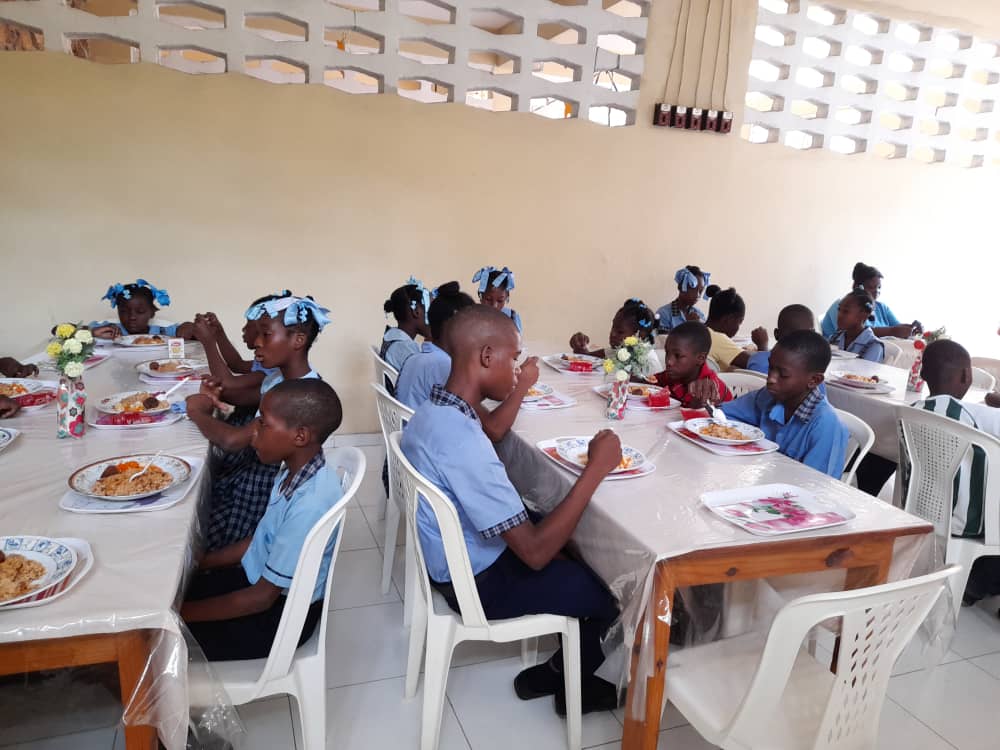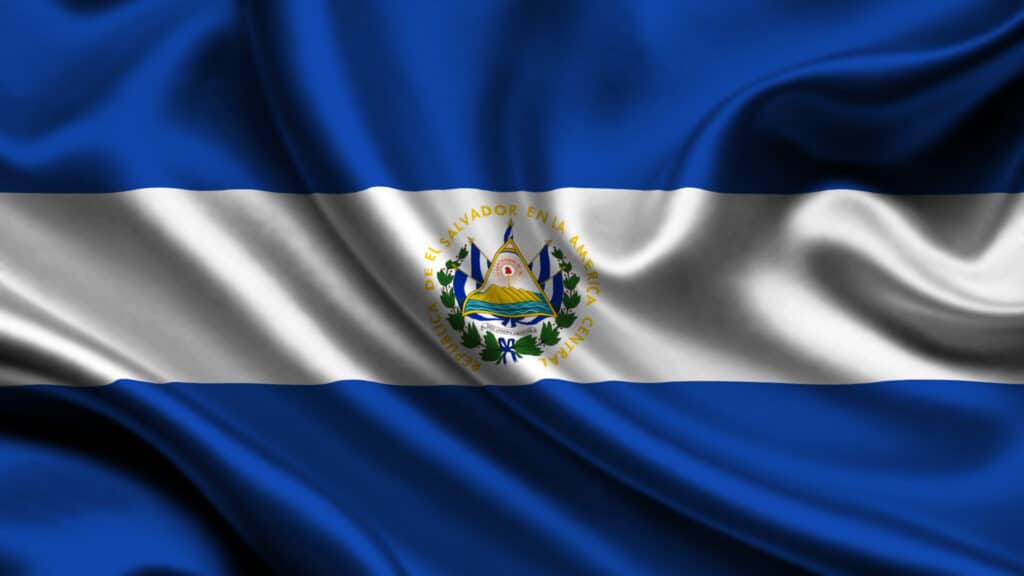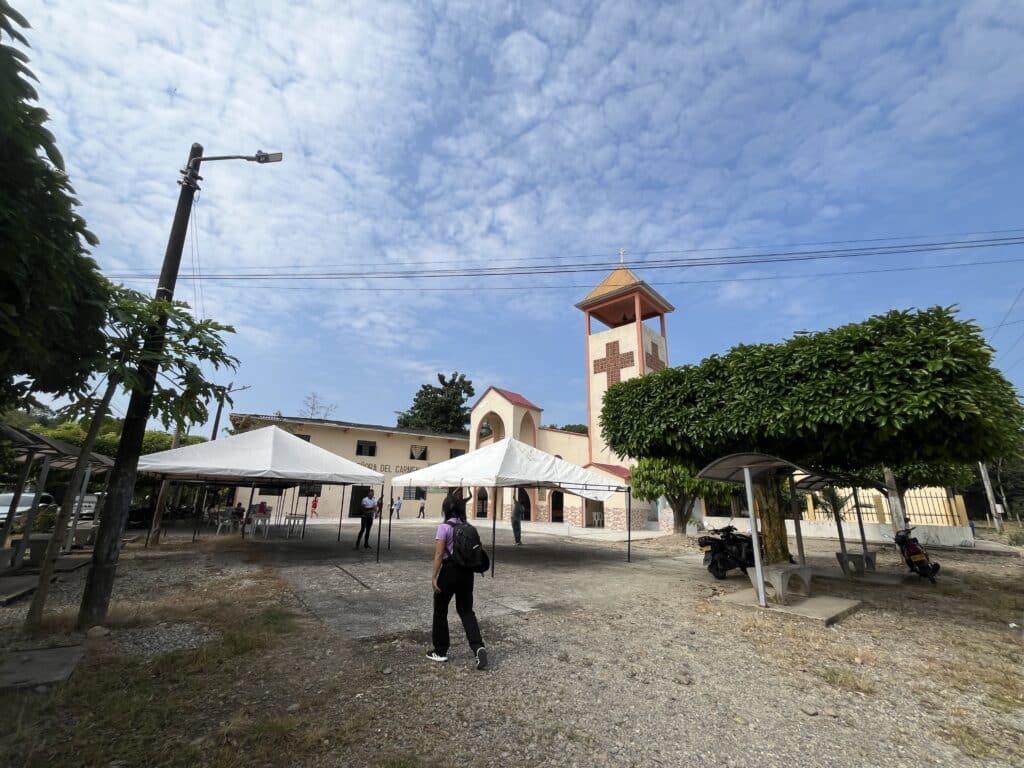Maya Kaqchikel University
Guatemala
Read the most recent update from Maya Kaqchikel University
Read about a recent visit from two leaders of the Ecumenical Christian Council of Guatemala here!
The Maya Kaqchikel University (UMK) is a a university formed by the Ecumenical Christian Council of Guatemala. The University began its academic activities in 2014, and their primary objective is to train professionals with technical, scientific, and methodological strength to promote building a fair society with gender equality and openness to multiculturalism. Maya Kaqchikel University believes their academic approach is an opportunity to overcome the marginalization and discrimination of the Mayan people and to strengthen their own capacity and potential.
Within Guatemalan society, the Mayan people’s strength is perceived only as physical, not mental. UMK believes through higher education and increased professionalization of indigenous people in Guatemala is a way for personal, family, and community dignity. UMK offers a liberating education, based on creativity and stimulating reflections on the discussions within the current contexts of society. Throughout all of the courses at the university, students are viewed and treated as self-constructors, creators of culture, and makers of history rather than objects within culture and history. UMK provides opportunities for students to cultivate their own worldviews, wisdom, technologies, values, principles and production models.
Specific goals of the UMK include:
- to construct holistic study
- to develop research, creativity, and innovation
- To promote creativity, initiative, critical thinking, and social awareness
- To promote the protection of ancestral knowledge
- To be accessible to the public and to provide services to the community
- To value and promote the life and culture of the indigenous peoples of Guatemala
The UMK offers learning opportunities in the justice system and community law, teaching Mayan language and history, ancestral studies (ex: crafts, eco-tourism, native medicine, etc.), business administration, and organizational systems. In 2016, over 200 students attended courses at the university. Depending on the program selected, UMK awards diplomas, degrees, and/or certificates to those who complete their course of study.
During 2016, UMK graduated 29 students from the program for Mayan language and history teachers. To graduate from this program, students must either write a thesis or serve several months as a student teacher with a written final report. The report and the thesis must both be defended before an examiner. Diplomas are then distributed in collaboration with the Ministry of Education of Guatemala and the Rector of the State University to ensure that their diplomas will be recognized around the country.
Further, in 2016, UMK and professors from the University of Antioquia of Colombia began collaborating for the academic training of UMK professors. UMK also met with four universities in Cuba to form an exchange program for students and professors between these universities. UMK also met with several private universities in Guatemala to create opportunities to share academic experiences and coordinate activities and academic forums on subjects of higher education.
Update: April 2018
In the second half of 2017, Maya Kaqchikel University (UMK) designated three areas of focus for improvement: academic structuring, administrative organization, and legal representation. This past year, 35 UMK students became certified translators of Mayan languages, officially approved to offer language services in courts of the Kaqchikel people. The language program is offered in cooperation with the Academy of Mayan languages, and UMK continues to seek cooperative opportunities with other universities and agencies as well. UMK aims to join the Interuniversity Network for Higher Education and Indigenous Peoples of Latin America.
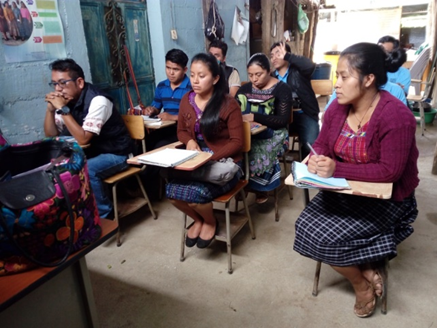 The university’s partnerships with different indigenous people groups are presenting new opportunities. UMK board members have met with leaders of the Sololá and Chuarrancho indigenous communities to gain their support. With elders of who have lent their cultural knowledge from their villages, traditional education is being systematized so that indigenous culture can be simultaneously studied and experienced.
The university’s partnerships with different indigenous people groups are presenting new opportunities. UMK board members have met with leaders of the Sololá and Chuarrancho indigenous communities to gain their support. With elders of who have lent their cultural knowledge from their villages, traditional education is being systematized so that indigenous culture can be simultaneously studied and experienced.
Looking ahead, academic goals for the university include providing more professional opportunities for students and creating a new program focused on entrepreneurship. Training students in business management would boost the local economy while also providing alumnae with the potential to make donations for the school’s sustainability.
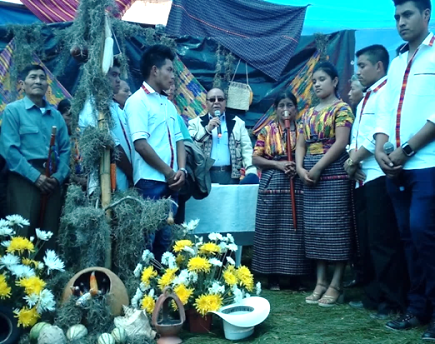 UMK is making significant progress with updating its administration. Last year UMK appointed a general secretary to handle administrative tasks, a step which is increasing the efficiency of communications, enrollment, and data management. Currently, the national government does not recognize the right of indigenous peoples to have their own higher educational institution, and it does not condone teaching of scholarly subjects from an indigenous culture’s perspective. Therefore, the government is not recognizing diplomas and degrees of UMK graduates at the moment. However, there is much support from the community and local attorneys who are working toward a solution.
UMK is making significant progress with updating its administration. Last year UMK appointed a general secretary to handle administrative tasks, a step which is increasing the efficiency of communications, enrollment, and data management. Currently, the national government does not recognize the right of indigenous peoples to have their own higher educational institution, and it does not condone teaching of scholarly subjects from an indigenous culture’s perspective. Therefore, the government is not recognizing diplomas and degrees of UMK graduates at the moment. However, there is much support from the community and local attorneys who are working toward a solution.
Gifts for the Maya Katchikuel University have contributed to field study research, teaching professors’ salaries, administrative improvements, translation training materials, and the development of a website for the university. Global Ministries welcomes gifts for university and extends thanks to all those who have contributed towards cultural programs in educational institutions.
Update: April 2019
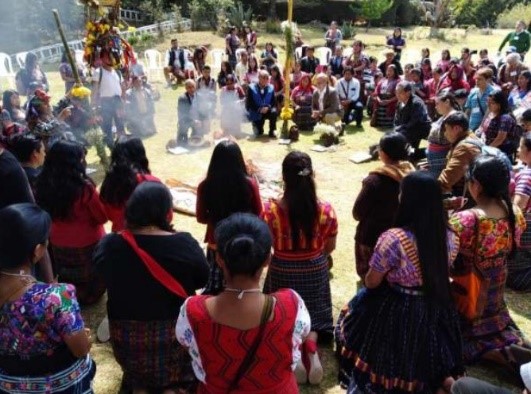 During the first half of 2018, the Maya Kaqchikel University (UMK) was focused on preparing for a conference on Mayan culture, skills, economy, and thought. This conference, titled “0th Mayan Science and Philosophy Congress” took place over three days, April 6-8, 2018, and included 175 participants. The purpose of this conference was to gather contemporary Mayan practitioners to protect and preserve the ancestral knowledge of the Mayan community. UMK writes, “The Science Congress among our Mayan community will be a space for discussion and collection of such knowledge in the face of the threat of it disappearing.”
During the first half of 2018, the Maya Kaqchikel University (UMK) was focused on preparing for a conference on Mayan culture, skills, economy, and thought. This conference, titled “0th Mayan Science and Philosophy Congress” took place over three days, April 6-8, 2018, and included 175 participants. The purpose of this conference was to gather contemporary Mayan practitioners to protect and preserve the ancestral knowledge of the Mayan community. UMK writes, “The Science Congress among our Mayan community will be a space for discussion and collection of such knowledge in the face of the threat of it disappearing.”
UMK also worked with professors, and the elders – grandmothers and grandfathers – of the Kaqchikel Mayan People, to put together an academic presentation on Mayan mathematics as seen in Mayan textile arts, agriculture, and economy as well as a presentation on the Mayan legal system and how Mayan authority is structured today.
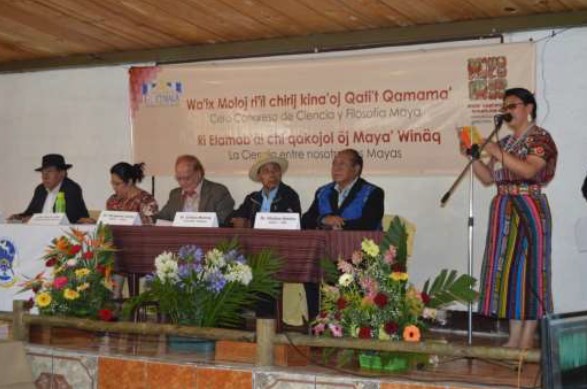 UMK continues to advocate for legal recognition as a university from the Government of Guatemala. This has been a continual struggle with the Guatemalan government as it does not recognize the right of indigenous peoples to have their own higher education institutions, and does not recognize a Mayan perspective on the topics of mathematics, culture, economy, and philosophy as a valid academic perspective.
UMK continues to advocate for legal recognition as a university from the Government of Guatemala. This has been a continual struggle with the Guatemalan government as it does not recognize the right of indigenous peoples to have their own higher education institutions, and does not recognize a Mayan perspective on the topics of mathematics, culture, economy, and philosophy as a valid academic perspective.
Future goals for UMK include continuing to advocate for legal standing of UMK as an approved university which should help the university in the areas of student recruitment and financial sustainability. Additionally, the University hopes to attend or send representatives to other global gatherings such as a UNESCO gathering to continue to communicate the necessity of their work in Guatemala and gather knowledge and ideas from other similar institutions.
UMK shares the story of student Sandra Patricia Saguach who shared her experience at the university’s conference:
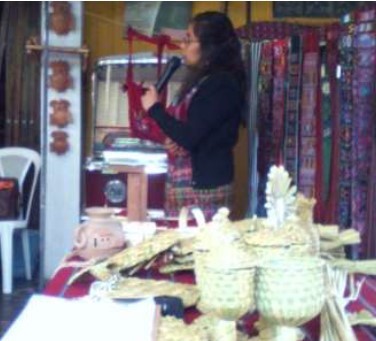 My name is Patricia, and I am 26 years old. I am from a Kaqchikel family with seven brothers and sisters. My father is a farmer and my mother is a weaver. From a young age, I can remember my mother weaving güipiles (women’s blouses). Every day in the afternoon, I would watch every movement she made on her loom. Every day, never taking a day off, my mother would spend many hours weaving. I have always liked the color, and the designs she put into the fabric.
My name is Patricia, and I am 26 years old. I am from a Kaqchikel family with seven brothers and sisters. My father is a farmer and my mother is a weaver. From a young age, I can remember my mother weaving güipiles (women’s blouses). Every day in the afternoon, I would watch every movement she made on her loom. Every day, never taking a day off, my mother would spend many hours weaving. I have always liked the color, and the designs she put into the fabric.
I learned about the Maya Kaqchikel University and that they taught the Kaqchikel language as a requirement for any degree program. I speak the Kaqchikel language well, but I do not read it or write it, nor did I understand the history of each word. Now, I have been studying here for two years, learning many things about the Mayan Kaqchikel culture, including the Mayan calendar and Mayan mathematics.
After two years at UMK, I am proud of my mother, my family, and my culture. Woven fabric is an art, but it is not only artisanship. It is a science and a philosophy built upon centuries of history.
Global Ministries now offers indigenous Guatemalan woven crafts through UCC Resources, made by a microcredit collective related to the Ecumenical Council of Guatemala. You can find out more about these beautiful, cultural expressions here. Proceeds from these sales support both the artisans themselves and go to support other microcredit efforts of Global Ministries partners around the world.
Update: December 2020
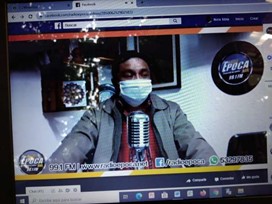 In spring 2020, as Covid-19 spread across Guatemala and the world, Maya Kaqchikel University (UMK) began utilizing radio and social media to counter misinformation and fear by providing listeners with accurate medical information and life-saving strategies for mental, emotional, and physical health. UMK is uniquely positioned to bring culturally competent information about the pandemic to its listeners. At the same time, the University draws on Kaqchikel medicinal knowledge and the collective wisdom of the community. The Kaqchikel Mayan community knew it possessed a deep well of resiliency and adaptability that could benefit others during the pandemic, particularly with regard to maintaining physical, mental, and emotional wellness in times of hardship and intense economic challenge.
In spring 2020, as Covid-19 spread across Guatemala and the world, Maya Kaqchikel University (UMK) began utilizing radio and social media to counter misinformation and fear by providing listeners with accurate medical information and life-saving strategies for mental, emotional, and physical health. UMK is uniquely positioned to bring culturally competent information about the pandemic to its listeners. At the same time, the University draws on Kaqchikel medicinal knowledge and the collective wisdom of the community. The Kaqchikel Mayan community knew it possessed a deep well of resiliency and adaptability that could benefit others during the pandemic, particularly with regard to maintaining physical, mental, and emotional wellness in times of hardship and intense economic challenge.
Using both traditional radio and Facebook Live, UMK conducted twenty-nine-hour-long radio programs between May and August 2020. Staff members fielded numerous questions from callers, connected listeners to experts on mental and emotional health, and provided critical information on Covid-19 prevention, treatment, and symptoms for the Kaqchikel community, and beyond.
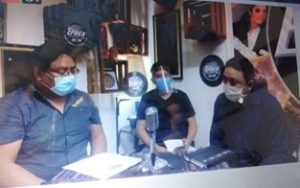 Programs ranged from basic information on Covid-19 to strategies for mental health, suicide prevention, identifying and dealing with difficult emotions, domestic violence, and the connection between physical health – especially a healthy diet – and mental health. Thanks to the blessing of technology, UMK was able to share this knowledge and wisdom not just with Kaqchikel-speaking Guatemalans, but with all. Through their networks, UMK was able to reach nearly 15,000 people with this life-saving information.
Programs ranged from basic information on Covid-19 to strategies for mental health, suicide prevention, identifying and dealing with difficult emotions, domestic violence, and the connection between physical health – especially a healthy diet – and mental health. Thanks to the blessing of technology, UMK was able to share this knowledge and wisdom not just with Kaqchikel-speaking Guatemalans, but with all. Through their networks, UMK was able to reach nearly 15,000 people with this life-saving information.
Leaders shared: In the face of this challenge, we are ready to participate from our natural place as an institution of higher education of, from, and for indigenous peoples. We are ready to research and organize the knowledge, practices, and ancestral methods of our grandparents and our elders in order to overcome the humanitarian, economic, and health effects which will be left by this pandemic.
In 2021, UMK is focused on training and equipping its faculty to provide virtual learning experiences for their students. UMK is working to ensure all faculty and classrooms have the technology they need, along with training on the pedagogy of digital learning.
Support this Ministry
To make a gift for this ministry online or by check use the online donation page.
- 100% of your gift will be directed to Maya Kaqchikel University
- You will receive updates on the work in this area as they become available
- Share in the vision of God’s abundant life for all people
Related Content
House of Hope in Haiti: ‘We Must Act’
Since the assassination of President Jovenel Moise in 2021, Haiti has seen a rise in gang activity...
Read MoreA message of solidarity with the Lutheran Synod of El Salvador after the passing of Bishop Medardo Gomez
Please join Global Ministries in prayer with the Lutheran Synod of El Salvador. Dear Bishop...
Read MoreThe Mass of the (Amazonian) World
Written by: Alex Maldonado-Lizardi and Xiomara Cintron-Garcia who serve with the Christian...
Read More
